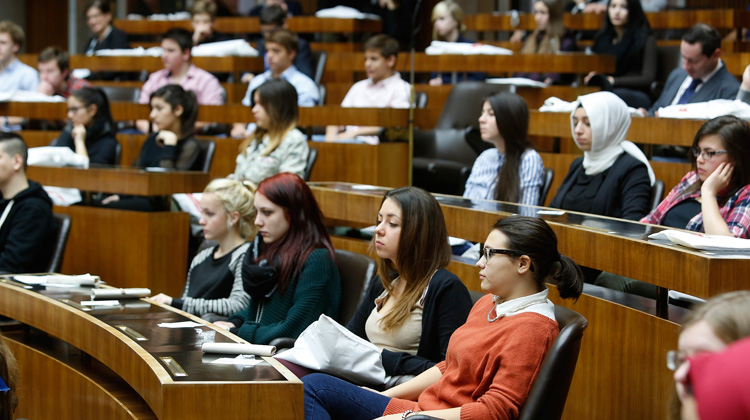
Youth councils represent the interests of the youth at the municipal level and are generally re-elected every two years. More and more municipalities have since come to hold their Youth Parliament elections online – and for good reason.
Even though there are always suggestions about lowering the minimum voting age in discussions about low voter participation, youth under 18 years of age are currently not authorised to vote. However, in order to represent their interests at the municipal level before the municipal council, the mayor or the city administration, more and more youth councils have been introduced since the mid-1980s. These do not have any binding decision-making competence, but they do serve an advisory function in municipal affairs that affect students and adolescents, and also often have a right to speak and petition against the municipal council. They are usually elected by adolescents between the ages of 14 and 18, who have their official residence in the municipality.
Over the last years more municipalities have come to hold their youth council elections as online votes through the internet. One example of this is the Youth Parliament election in the municipality of Wedemar in Germany, which was held in 2014 with POLYAS. In the current year 2015 further youth council elections will be held online through POLYAS in other German municipalities.
Online elections are a voting process suitable for young people
The young generation, the so-called “Digital Natives”, is used to being able to use online services for nearly every aspect of life. This makes online voting the logical addition to the online services they already use. For that reason, online elections are very well suited to increase voter participation and thus promote the motivation of young people to partake in democratic processes.
Online elections reduce the municipality’s administrative expenses
Online elections significantly save on expenses and reduce the effort of holding an election. For instance, it means that polling sites do not have to be established and ballots do not have to be printed. Even manually counting the ballots becomes superfluous, for POLYAS delivers the election results at the push of a button – secure and legally binding. The city of Münster thus expects to save itself the acquisition of around 150 local election aids by holding an election online.
Picture Source: Flickr/SPÖ (CC BY-SA 2.0-Lizenz)